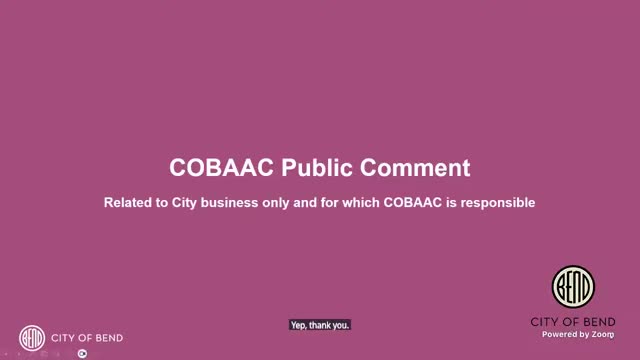Local advocate recalls history of the white cane, urges schools to mark White Cane Safety Day
Get AI-powered insights, summaries, and transcripts
Subscribe
Summary
Charlene Willis, a blind resident and member of the American Council of the Blind (Portland chapter), described White Cane Safety Day’s history, discussed cane etiquette, and urged COBAC to use the proclamation as a vehicle for school outreach and public education.
Charlene Willis, a blind Bend resident and member of the Portland chapter of the American Council of the Blind, addressed COBAC on Thursday about White Cane Safety Day and Blind Americans Equality Day proclamations she helped secure from the city and urged broader public education, especially in schools.
Willis recounted White Cane Safety Day’s federal recognition beginning in 1964 and explained how the white cane functions both as a mobility tool and an identifier for people who are blind or have low vision. "The white cane is meant to help us navigate safely and independently," Willis said. She warned against touching a person or their cane without consent and urged people to ask before offering help.
COBAC members asked if the proclamation could be used as an educational vehicle for local schools. Whitney Bennett (COBAC member, online) said she would like to connect Willis with Bend-La Pine School District contacts and explore library or school events modeled on Portland’s activities. Willis confirmed that Portland chapters have staged library events and invited schoolchildren to learn cane use and participate in guided walks.
During a short Q&A, John Halen (COBAC member) asked how a visually impaired person might signal they needed assistance in areas with few passersby; Willis replied that responses vary by individual and advised people who see someone hesitating to speak first and not touch. COBAC chair Liz Woodfin thanked Willis and asked staff to connect Bennett and Willis for follow-up.
Willis asked COBAC to consider the proclamation a starting point and to explore integrating awareness activities into youth outreach in future observances.
